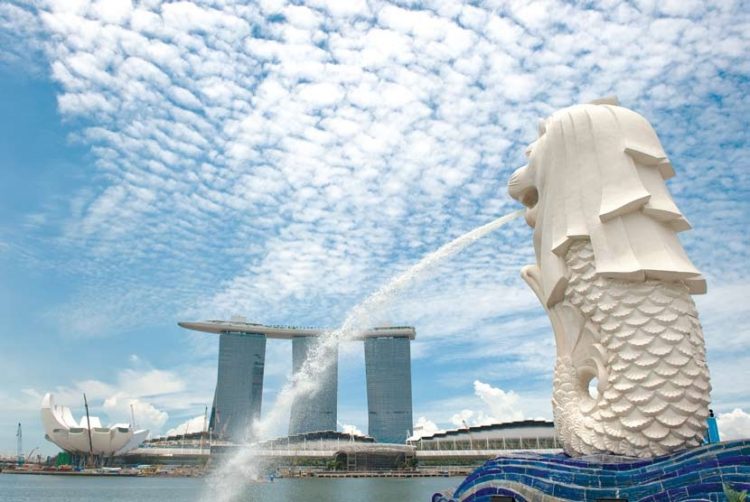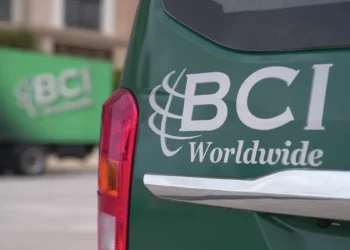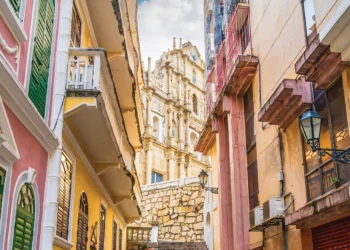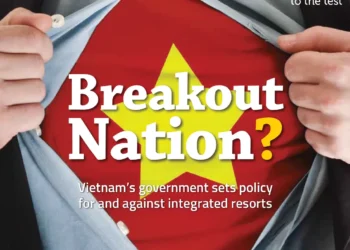Could Singapore allow junkets to operate at its casinos?
Singapore set the bar very high in terms of probity standards for casino junket agents wishing to operate from the city-state’s casinos.
With such tough rules, how easy will it be for the Lion City to authorise junkets, even if there’s a political will among lawmakers to do so?
Singapore’s Casino Regulatory Authority (CRA) confirmed recently that an unspecified number of junket agents had applied to operate out of Resorts World Sentosa, Genting Singapore’s integrated resort. Analysts suggest as many as 20 agents initially applied. According to reports in the Singapore media, at least half of them—following a lengthy background check of about nine months—have moved on to the interview stage, which could take several more months. That leaves the possibility of some junket applicants being licensed before the end of the first quarter 2011.
The 29 pages of probity requirements for junkets as set out in the Casino Control (Junkets) Regulations 2009 and the supporting application forms include a requirement for applicants to list all assets, foreign and domestic bank accounts and business activities for the 15 years prior to their application.
In Macau, there’s a widely held view that it’s quite easy to get a junket licence. There, the licences are issued on a room basis, rather than on a junket-by-junket basis. Industry sources say the individual named on the room licence (as required under local rules) is rarely the ‘controlling mind’—to use a phrase from English commercial law—of the business. The real boss or bosses are other parties usually from the junket investor or consolidator that feeds that particular room and others with players.
Could a parallel system evolve in Singapore, i.e. where the entity and persons holding the junket licence are passed as fit, but the ‘controlling mind’ remains elsewhere? It would potentially be very hard to prove or disprove outside influence, just as it is very hard to prove or disprove the claims that there are proxy junkets already operating out of Singapore. Proxy junkets allegedly operate by getting a junket front person to check in money representing himself to the casino management as a direct premium player. The ‘front’ then shares the chips with ‘friends’ who happen to be customers of that junket.
This ambiguity regarding ultimate control of junkets and the difficulty in policing the junket system is precisely why Singapore drew up such tough regulations in the first place. The junket regulations were either designed effectively to outlaw junkets without stating it as a policy in so many words, or they were designed to introduce (perhaps for domestic political reasons) an illusion of control and absolute certainty in relation to regulating junkets, when in fact no such certainty is possible.
The CRA’s job in this context is quite straightforward. It simply has to implement the relevant criteria and checks demanded by lawmakers to the best of its ability. If the CRA makes all the necessary background checks and finds no objections to the issuing of one or more junket licences, would the Singapore government still be able to make a political decision that keeps the door closed to junkets at RWS, or would it be bound by the CRA findings? Given that the deliberations of the CRA vetting procedure are not themselves made public, lawmakers could theoretically still exercise ultimate control over the process.
There are a number of political and commercial factors that could potentially swing the government’s position either way. Potential benefits include the fact the nation’s leaders would prefer rich people, and ideally foreign rich people, to be the ones losing the money at its casino tables, not its own low-income and middle classes, or even its neighbours’ less well off citizens. There has been some negative publicity recently about the casinos targeting lower-income local players rather than wealthy foreign tourists.
Sheldon Adelson, the Chairman and Chief Executive of Las Vegas Sands Corp, the developer and operator of Marina Bay Sands (MBS), said during his company’s third quarter earnings conference call that around 60% of his gaming “income” (his phrase) at MBS was coming from VIP play. VIP rolling in 3Q 2010 at MBS amounted to nearly US$10.3 billion.
By definition, given that junkets are not currently authorised in Singapore, all of MBS’s VIP action in the third quarter must have come from direct premium players issued with credit directly by the casino. While Mr Adelson is known to be keen to leave out the middlemen agents wherever possible, in the same earnings call he also alluded to one of the factors that could currently limit the growth of the Singapore VIP segment—credit default risk.
“We are building up steady stream of business from Korea, from Japan. And outside of that area Hong Kong is our biggest contributor. China is, let me say, equally as strong. So we get a lot of business from China, but we are very cautious about granting credit only to people that we know.”
The granting of junket licences in Singapore would remove some of the credit risk from the operators’ shoulders and likely deliver a higher volume of foreign ‘whales’.
The phrase ‘Asian junket’ is synonymous in operators’ minds with the word ‘sharing’, in relation to VIP commission. But Singapore’s low tax rates (5% VIP gaming tax plus 7% Goods and Services Tax) will ensure that any Singapore-generated junket play will still be more profitable than its equivalent in Macau, where gaming tax is levied at 35%, with two further contributions of up to 2% and 3% of the gross respectively for social and economic purposes.
Allowing VIP junkets to operate legitimately would potentially open the Singapore casino market to even more mainland Chinese high rollers. Those VIPS cannot legally convert their renminbi wealth on the international market unless they have RMB accounts held in Hong Kong or Macau. Such an opening up of the Singapore VIP market could, however, potentially have negative implications for diplomatic relations between China and Singapore. That’s unless China were kept notified about whom among its citizens were signing up as Singapore junket customers and how much they were spending. Legal Singapore junkets could also make life easier for gamblers from jurisdictions such as Vietnam and Indonesia, where controls on currency exchange and currency export are maintained.
A second political benefit for Singapore of allowing some junkets is that it would merely legitimise and regulate what is allegedly already happening in the form of proxy junkets. Inside Asian Gaming would like to point out we make no suggestion that the 20 current junket applicants in Singapore are involved in operating proxy junkets.
Arguably by licensing some junkets legitimately, the CRA could create a readymade watchdog to guard against proxies in the market. A junket that has gone to the trouble and expense of getting officially licensed will not want an unlicensed proxy junket encroaching on its turf. The licensed supplier will have a commercial interest in spotting and, if necessary, whistle blowing on anyone it suspects of being a proxy.
By endorsing what in effect is a mass rush by junkets toward the ‘in door’ of Singapore casino gaming, RWS is also arguably issuing a commercial challenge to LVS, which appears to have been very successful in recruiting a diverse collection of direct VIPs.
Mr Adelson said during the 3Q conference call: “I’ll tell you that I watch that [figures on VIP gaming at MBS] every single day, but I only have access to the top 20 what we call the hit sheet—the top ten winners, top ten losers and the average number of countries that are represented—and those 20 customers are [from] eight to nine different countries. We get countries from all over the Pacific, from Laos and Cambodia and Myanmar. Let me get back to the beginning and say that our primary markets are Singapore, Malaysia and Indonesia.”
The potential arrival of licensed junkets at RWS shouldn’t lose MBS any direct VIP business in the short term. Some direct players have apparently made a positive choice to go with MBS despite the fact the property may be paying them a lower commission on their roll (generally a maximum of 1.3% according to Michael Leven during the second quarter earnings call) compared to as much as 1.5% at RWS (a figure quoted by Mr Adelson in the same 2Q conference call). However, the advent of licensed junkets at RWS would potentially create commercial pressure for MBS to attempt to bring in its own junkets, or surrender VIP volume to RWS in exchange for maintaining margin on the MBS direct business.
Even if MBS were to seek out and gain approval for junket partners as a defensive commercial move in response to RWS, it could have the unwanted side effect of diverting new players—who might otherwise qualify as the most profitable direct players with MBS—into the arms of the junkets. That’s a scenario that has already played out to LVS’s annoyance in Macau.


































